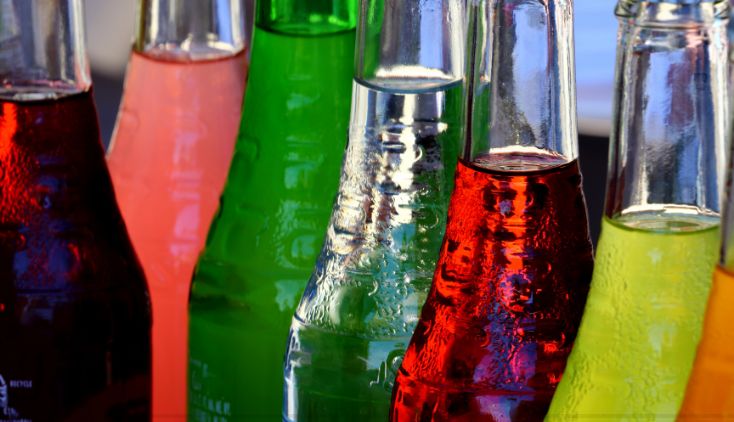Sips That May Harm
Lymphoma is a relatively rare cancer that affects the lymphatic system, the part of the body's germ-fighting and disease-fighting immune system. Lymphoma is characterized by healthy cells in the lymphatic system growing out of control, leading to symptoms like fever, fatigue and swelling. When managing lymphoma, diet plays a significant role in overall health and well-being.
Carcinogenic Drinks to Avoid
- Soda.
- Sugary fruit juices.
- Energy drinks.
- Alcohol.
- Sweetened iced tea.
- Processed fruit drinks.
- Flavored waters with artificial sweeteners.
- Sweetened coffee drinks.
- Sports drinks with added sugars.
- Canned iced coffees and teas.
Drinks to Avoid for Lymphoma
The following list of drinks have ingredients that have been shown to worsen symptoms of lymphoma and therefore should be avoided for anyone struggling with this disease.
Alcoholic Beverages
There are many reasons that alcohol should be avoided for anyone with cancer, but particularly lymphoma. First of all, alcohol can interfere with the immune system, which is already compromised in people with lymphoma.
This can lead to exacerbated symptoms and worsened sickness. In addition, alcohol consumption has been shown to impair the body’s ability to process and absorb essential nutrients like folate, carotenoids and vitamins A, C, D and E. Alcohol can also interfere with chemotherapy or other treatments, causing liver stress and increasing inflammation.
Sugary Soft Drinks
Soft drinks with high sugar content are detrimental for individuals with lymphoma. Excessive sugar consumption has been linked to increased inflammation and obesity, which can further complicate treatment outcomes.
Energy Drinks
Energy drinks are loaded with caffeine, sugar and artificial ingredients, all of which are ingredients that may worsen symptoms for people with lymphoma. They can increase blood pressure, raise heart rate, negatively affect sleep quality, interfere with the body's ability to heal and may even increase anxiety.
Artificially Flavored Fruit Juices
Many fruit juices contain high amounts of added sugar, artificial flavorings and preservatives, all of which are ingredients that can contribute to inflammation. Inflammation is particularly harmful for lymphoma patients. It is recommended instead to opt for whole fruits or fresh juices without additives.
Carbonated Soft Drinks
Both diet and regular sodas contain additives that are harmful to health. Regular sodas have a high sugar content, while diet sodas are filled with artificial sweeteners like aspartame. Some studies suggest that excessive consumption of these drinks may raise the risk of certain cancers, although research is still ongoing.
High-Caffeine Coffee and Tea
Excess caffeine intake can lead to dehydration, sleep disturbances and jitteriness, all of which are counterproductive during cancer treatment. It is recommended to enjoy coffee and tea in moderation, as high amounts of caffeine can have adverse effects on lymphoma patients.
Processed or Artificially Sweetened Milkshakes
Milkshakes, especially those made with artificial sweeteners or processed ingredients, are high in unhealthy fats and sugars. These drinks can contribute to obesity and inflammation, which may hinder the body's ability to respond to treatment.
Sweetened Iced Teas
Sweetened iced teas are often high in sugar and artificial flavors. These drinks can increase blood sugar levels and contribute to inflammation. Unsweetened, natural teas or herbal teas can be healthier alternatives, as long as they don’t contain caffeine in excess.
Liquid Choices
Patients with lymphoma should be cautious about the beverages they consume, as some drinks can exacerbate symptoms, interfere with treatment or contribute to long-term health issues. Staying hydrated with water, fresh juices and herbal teas can support overall health and improve treatment outcomes. Always consult with your healthcare provider before making dietary changes during cancer treatment.
It is important to note that there’s not one drink in particular that can lead to getting cancer. Make sure to enjoy your foods and drinks in moderation.
Read on to learn more about the worst drinks for vision loss.
